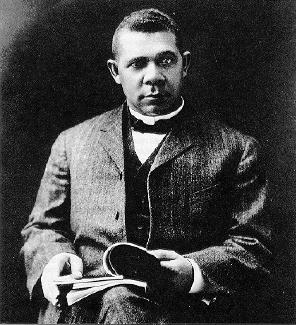|
A few years later, Booker was
taken in as a house boy by a wealthy towns woman who further encouraged
his longing to learn. When he was 16 he walked almost 500 miles back to
Malden to enroll in a new school for black students. This school was
called Hampton Agricultural Institute and graduated. After that he found a
job at another school there and became and instructor, and was employed by
Samuel Armstrong to teach Native Americans. In 1880 William Foster and Arthur
Brooks won a local election and then used there influence to secure
approval for building a negro school called Tuskegee Institute. Samuel
Armstrong, principal of Hampton Institute, was asked to recommend a white
teacher to take charge of the school, but Samuel suggested that it would
be better to employ Washington instead. |
|
The Tuskegee Negro Institute was
opened on the 4th of July in 1888. The school received funding of $2,000 a
year, that was only enough to pay the teachers. The school taught
subjects, but emphasized a practical education. This included Farming,
Carpentry, Brick making, Shoemaking, Printing, and Cabinetmaking. Students
worked long hours, waking up at 5 a.m. and finishing at 9:30 at night. The
school owned 540 acres of land and had over 400 students. And later,
Southern whites who were against Washington educating the blacks, started
to support is ideas and got for it. |
